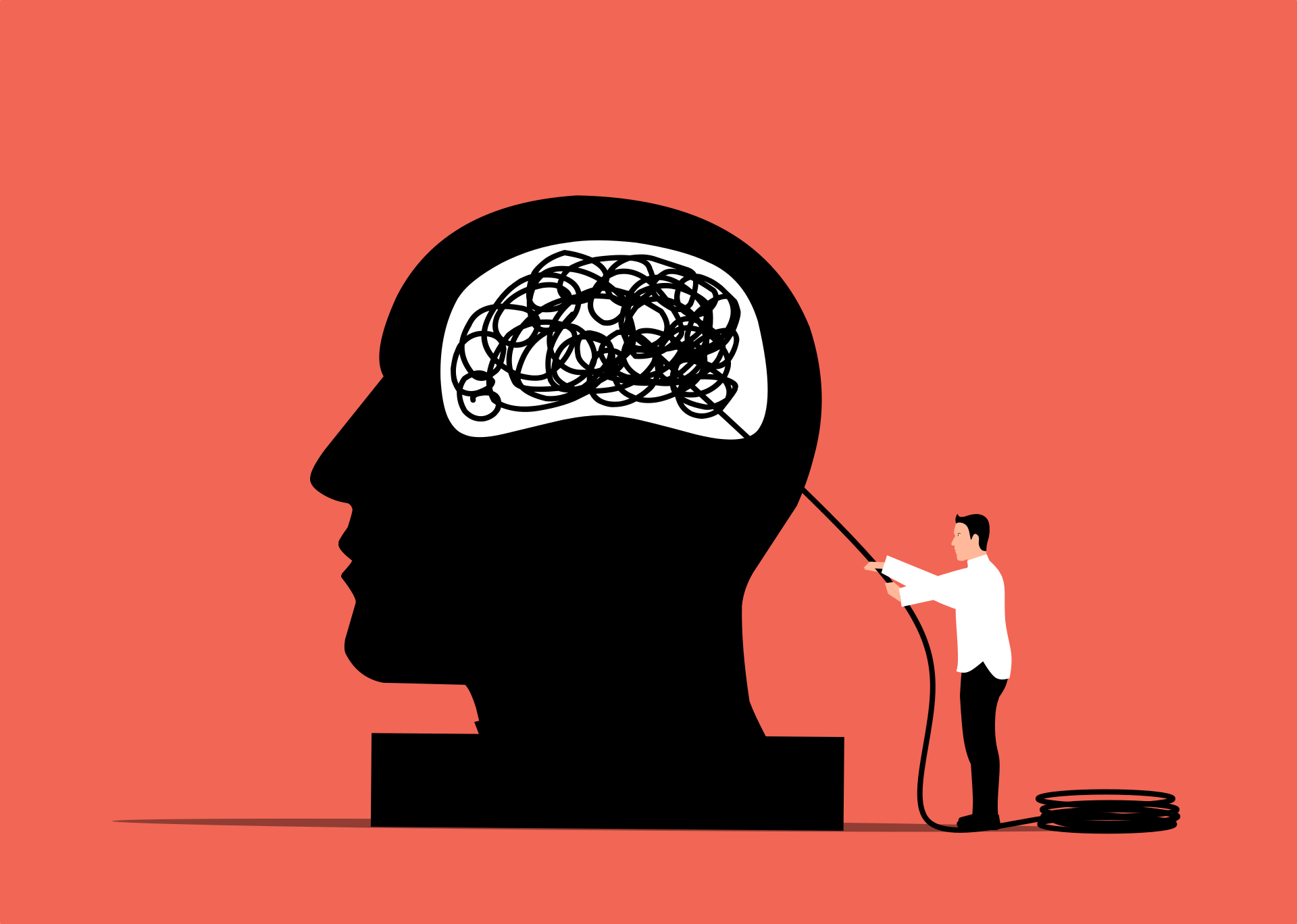“Whenever I think of something but can't think of what it was I was thinking of, I can't stop thinking until I think I'm thinking of it again. I think I think too much.”
-
The act of processing knowledge and understanding through thought, experience, and the senses is known as cognition. Everything time we use our minds we are activating our cognitive abilities to accomplish tasks such as reading, talking, studying, making jokes, or cooking. Also, reasoning and remembering require the mind to use cognition.
But, how can we learn more about how the human brain uses its cognitive powers? For decades, psychologists have been working around the clock to focus on the cognitive approach and neuroscience methods.
Without further ado, in today's article, let's learn everything there is to learn about cognitive psychology.
You can check out the most effective psychology tutor on superprof here.

What is the Cognitive Approach in Psychology?

It's only logical to assume that the topic of psychology is broken up into smaller branches and subdisciplines to allow students to comprehend psychological information bit by bit without feeling overwhelmed. Also, by having various genres of psychology, experts can decide whether or not they would like to deepen their understanding of the topic in question.
As mentioned at the onset of this article, one of the primary branches of psychology is known as cognitive psychology. The field of study of cognitive psychology serves the purpose of understanding the mental processes of humans such as attention, language use, memory, perception, problem-solving, creativity, and reasoning.
A lot of the work conducted by psychologists in the sector of cognitive psychology can now be seen in other disciplines of psychology and in entirely different sectors such as economics, linguistics, and cognitive sciences. The study of cognitive psychology traces its origins back to the 1950s when psychologists needed a break from only covering behaviourism.
Cognitive psychology and cognitive science are sometimes interrelated; however, they have unique characteristics. For example, cognitive psychology deals more with applied psychology and how humans take in, absorb, and process information. Many trials and tests are conducted with humans.
On the other hand, cognitive science is a much broader subject and doesn't solely deal with psychology but also linguistics, anthropology, neuroscience, philosophy, and artificial intelligence.
Psychologists have separated the theories and disciplines of cognitive psychology to make it easier to grasp for modern-day learners like you and me. What are the some of theories of cognitive psychology? Let's take a look at the following subheading.
What are Cognitive Psychology Theories?
Brought to life by some of the most brilliant minds of the 20th and 21st centuries, the theories and methods employed in cognitive psychology are varied. All theories serve the purpose of answering questions about the human brain and how we act as individuals. It's worth stating that there are some theories that are more popularly studied and applied by most cognitive psychologists. Such as? The list below features the most recognisable theories of cognitive psychology:
- Classical Conditioning Theory,
- Operant Conditioning Theory,
- Gardner's Theory of Multiple Intelligences,
- Sternberg’s Triarchic Theory of Intelligence,
- Piagetian Approach.
Many tests and studies have been conducted with both adults and children to determine if the previously mentioned theories are accurate.
Also, it's worth stating that the most prime examples of cognitive psychology are the following:
- Recognition,
- Attention,
- Memory,
- Problem-solving,
- Perception.
By utilising examples from the aforementioned list, a cognitive psychology revolution was established and more understanding of of the human brain was established. But, where can UK students learn more about theories and examples of cognitive psychology? By attending further education programs at qualified schools. Take a look at the following list to learn more.

Where to Study Cognitive Psychology in the UK?

Have the descriptions about cognitive psychology turned you on to the subject? Do you want to learn everything there is about cognitive psychology? If so, you'll be happy to find out that there are many full-time and part-time study options to equip yourself with a better comprehension of cognitive psychology.
As for part-time study options, you can select between self-paced courses that are available for purchase on sites such as Udemy or you can take occasional lessons with professional psychology tutors.
Nonetheless, it's important to mention that the most typical method of studying cognitive psychology is attending university courses. But, where? The list below features two greatly esteemed universities that have cognitive psychology degree programs for undergraduates:
- The University of Manchester: recognised as one of the greatest and most trusted further education centres in Manchester, The University of Manchester offers an intriguing BSc (Hons) course in cognitive psychology titled, Cognitive Neuroscience and Psychology. This full-time study course is held at the Faculty of Biology, Medicine, and Health and has great reviews from past students.
- University of Nottingham: the Psychology and Cognitive Neuroscience course at the University of Nottingham is a BSc (Hons) degree program for undergraduate students that requires 112-147 UCAS points yet has an 85% placement rate after successfully completed. Check out the uni's website to get more information about the modules and specific topics that will be discussed.
Check to see if you have the necessary prerequisites to attend the aforementioned courses. Above-average GCSE and A-Level grades in topics such as maths, sciences, and psychology are necessary to enter cognitive psychology courses at a higher education level.
Also, though the two previously mentioned courses deal primarily with cognitive psychology, most psychology degree courses offered at UK universities touch on principles of cognitive psychology such as memory and perception.
What are the Best Books to Understand Cognitive Psychology?
Even if you're studying a degree program in cognitive psychology, it's a wise idea for learners to complement their review sessions with alternative resources such as flashcards, videos, and non-fiction books. However, since we're in the age of information, there are so many resources which leads students feeling overwhelmed by the options available to them.
Therefore, to make matters easier for our readers, we've compiled the following list of the absolute best books to read to improve your understanding of cognitive psychology:
- Cognitive Psychology: boasting fantastic reviews from trustworthy websites, Cognitive Psychology written by Mark T. Keane is a leading textbook that explores the basics of cognitive psychology in a straightforward manner that enhances the readability for people of all types.
- Thinking, Fast and Slow: regarded as one of the best psychology books of all time, Daniel Kahneman's book Thinking, Fast and Slow is a great read and brilliant introduction to cognitive psychology. In this book, Kahneman analyses two types of thinking. Type 1 is very fast, instinctive, and emotional. Whereas, on the other hand, Type 2 is slower, more deliberative, and more logical. The distinctions between both types of thinking methods are analysed across 499 pages.
- Blink: written by the acclaimed psychologist Malcolm Gladwell, the non-fiction novel Blink covers various aspects of cognitive psychology by analysing how humans make unconscious decisions affecting daily life very rapidly without thinking too much about it. Blink makes you review and understand every single decision you will ever make. An eye-opening read!
- Mistakes Were Made: Carol Tavris and Elliot Aronson explore social psychology with links to cognitive psychology in their book, Mistakes Were Made (But Not by Me). Cognitive dissonance and cognitive bias are explored through theories and real-life events that occurred.
There you have it, four outstanding novels by brilliant cognitive psychologists to add to your reading list!
What About Hiring a Tutor to Learn More About Cognitive Psychology?

Whether you're studying cognitive psychology as part of your MSc or BSc degree program at uni or you're simply expanding your knowledge of topics as an adult learner, it's worth highlighting that you'll occasionally need assistance when honing new theories introduced in cognitive psychology. Therefore, it's a brilliant idea to hire a private and professional psychology tutor.
But, where and how? The best psychology tutors in the United Kingdom can be found on the Supeprof website. By visiting the Superprof site, you can hire cognitive psychology educators that teach hourly lessons in-person or virtually. According to our website, there are currently 218 cognitive psychology instructors that have experience teaching students of all levels.
We highly recommend checking the tutor's profile to see whether their teaching style matches your learning goals.
Superprof is the best tutoring community in the UK for the following reasons:
- Massive variety of psychology tutors,
- The possibility of in-person and online tutoring classes,
- An easy-to-use lesson booking software,
- Affordable hourly tuition,
- A fantastic tutor/student support staff.
Also, in most cases, cognitive psychology tutors offer the first lesson for free to new students; that's a huge bonus!
In conclusion, cognitive psychology helps us better understand our own motives and those of the people around us. Taking the time to learn more about the psychology genre makes us more balanced individuals.
Summarise with AI:















